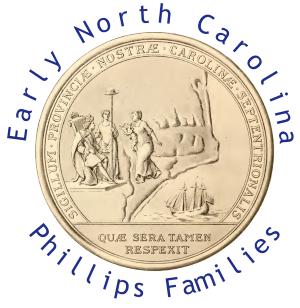Fundamental Constitutions of Carolina
From ENC Phillips Group Wiki
The Fundamental Constitutions of Carolina were adopted in March 1669 by the eight Lords Proprietor of the Province of Carolina, which included most of the land in between what is now Virginia and Florida. It replaced the Charter of Carolina and the Concessions and Agreements of the Lords Proprietors of the Province of Carolina (1665). Unpopular with many of the early settlers, the Fundamental Constitutions were never ratified by the assembly and were largely abandoned by 1700.
Contents
Authorship
- REDIRECT Template:John Locke
The Fundamental Constitutions are usually attributed to John Locke, in collaboration with his patron Anthony Ashley-Cooper, 1st Earl of Shaftesbury, a leading Lords Proprietors with a long-standing interest in colonial affairs. While there is some question of the degree to which Locke, as Shaftesbury's secretary, bears responsibility for their final form, most likely the pair are the document's princial architects, the other proprietors making minor contributions.
Mixture of ideologies
The Fundamental Constitutions contain an intriguing mixture of liberal and feudalist ideas, spanning from then modern concepts of representative government and partial religious freedom to preservation of pre-Enlightenment institutions of serfdom and slavery.
Liberal provisions
On the one hand, the Fundamental Constitutions aimed to create a representative government in which many men could participate. The property requirement for voting was a mere 50 acres (0.2 km²), while the property requirement for holding a seat in the legislature was 500 acres (2 km²). These requirements were both quite modest in a seventeenth-century context. Moreover, although the Church of England was established as the official state church, Dissenters were offered both civil and political rights in the new colony. Elections were to be held by secret ballot, which was not yet common practice in England in the seventeenth century. Laws were to expire automatically after sixty years, thus preventing outdated regulations from remaining on the books.
Feudal provisions
On the other hand, one of the goals of the Fundamental Constitutions was to create an orderly society controlled by a titled, landed gentry in Carolina and ultimately by the Lords Proprietor in England. The two major ranks in the Carolina nobility would be the landgraves, with 48,000 acres (194 km²) apiece, and the caciques with 24,000 acres (97 km²) apiece. The Fundamental Constitutions envisioned a society that would also include both serfs (called "leetmen") and slaves. The unicameral parliament would be permitted to debate only those measures that had previously been approved by the Lords Proprietors, thus ensuring that the proprietors maintained control over colonial affairs.
Failure to ratify
The Fundamental Constitutions were unpopular with most of the early settlers in the southern half of the Province (today's South Carolina), who preferred the more flexible royal charter as a basis for government. Consequently, the Fundamental Constitutions were never ratified by the assembly, and they were largely abandoned as an instrument of government by 1700. Nevertheless, several of their provisions, such as the guarantee of religious freedom and the modest property requirement for suffrage, helped to shape the culture of South Carolina and, later, of North Carolina.
See also
- British colonization of the Americas
- colonial period of South Carolina
- North Carolina Constitution
- Province of Carolina
- Province of North Carolina
- Province of South Carolina
- South Carolina Constitution
References and further reading
- Sirmans, M. Eugene. Colonial South Carolina: A Political History, 1663-1763. Chapel Hill: University of North Carolina Press, 1966.
- Weir, Robert M. Colonial South Carolina: A History. Columbia: University of South Carolina Press, 1997.

